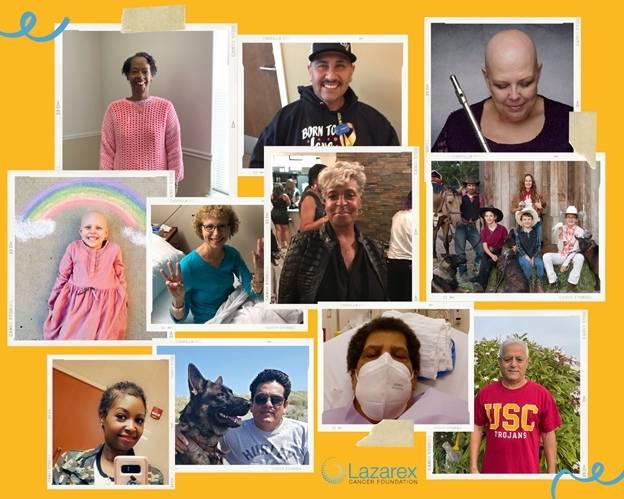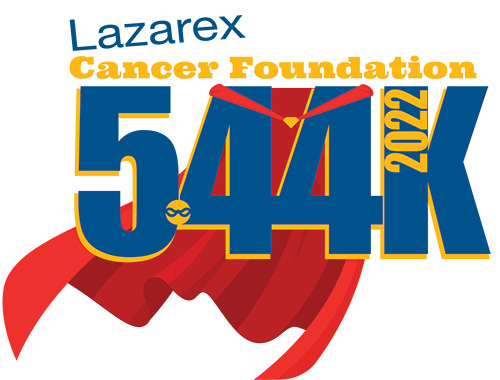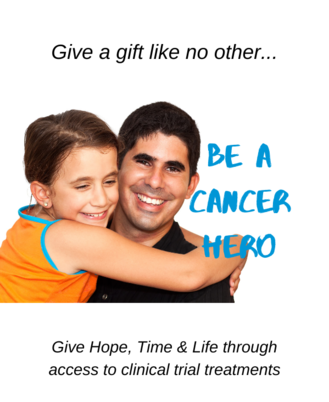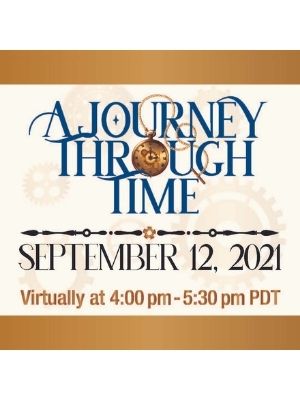Here are four key ways that I’ve seen our collective endurance lead to innovation, invention, and re-imagining the impossible in this year.
By Dana Dornsife, Founder & CEO, Lazarex Cancer Foundation

In 2021, we all became intimately familiar with how to endure – each of us in our own way – based upon the unique challenges that invaded our lives. We tested our levels of adaptation and tolerance and many of us faced grief in ways we had never thought possible and will never forget. We experienced isolation, scarcity, insecurity, and injustice. Societal disparity, once again, became too real for ALL of us, but for none more so than many residents of our communities of color where COVID disproportionately tipped the scale and shattered an already fragile existence. In addition to enduring cancer, our cancer patients were burdened with chaos in the systems that they had come to rely upon for their very lives. We watched our frontline medical workers and service providers selflessly work through the chaos, staying the course for those who needed them. We also watched people come together and overcame barriers to bring help and relief to complete strangers.
It has been a hard year for many but there is a silver lining – a point of light in this Covid-induced cloud of darkness. This year has shown us that we must do better on behalf of all patients and not just with words but with action. Equitable access to cancer care and clinical trials should not be situational, and a person should not have to rely on the generosity of others to be able to take advantage of the best medicine has to offer to cancer patients – their very survival depends upon it.
At the same time, as 2021 comes to an end, there are many things to be grateful for. Here are four key ways that I’ve seen our collective endurance lead to innovation, invention, and re-imagining the impossible in this year.
Assisting a record-breaking number of patients with travel reimbursements to cancer clinical trials
Each year, since our inception 15 years ago, we have helped more and more people and we continued that trend in 2021. This past year we saw an increase of about 8% in the number of patients to whom we provided travel reimbursements. We will end 2021 having served about 1,145 patients. Travel reimbursements went to the following this year:
- 57.3% to lodging
- 26.2% to flights
- 18.1% to mileage, parking and tolls
- 9.6% to ground transportation
- 1.9% to other costs
Cancer patients are often candidates for clinical trials, but travel costs prevent many from taking part. So, the most important percentage to keep in mind is that 100% of our patients were able to access potentially life-saving care in 2021 because of this program. One of those patients is a woman named Shelby. Her family says there’s no way they could afford the trip for the life-saving treatment she needs without this assistance. The bottom line, says Shelby’s dad, “if it weren’t for Lazarex, Shelby wouldn’t be here.” This year – and every year – we couldn’t be more grateful for the opportunity to help Shelby and so many others in this way.
Development of Cancer Wellness HUBS
Lazarex Cancer Wellness HUBs are “safe spaces” for community members to talk about their health concerns in relation to cancer and explore their options from prevention through treatment and clinical trials. They are also at the core of what we do. In 2021 we saw the expansion of our Cancer Wellness HUB in West Philadelphia (funded by Gilead) as it entered its second year, the launch of a “pop up” HUB in Los Angeles, CA (funded by Amgen), and the preliminary stages underway for a HUB in our own backyard, the East Bay area of San Francisco, at John Muir Health (funded by Seagen).
We are so grateful for the creation of these HUBS because they allow us to move beyond talking about the problem of health disparities to actually taking action in communities to address barriers and burdens on underserved populations. Through the HUBs we meet people where they are and bring much-needed, potentially life-saving resources to them. In these HUBS, which pop up in already established and trusted places in the community like churches and recreation centers, residents have the opportunity to develop personal relationships with culturally appropriate Cancer Care Companions to help them feel welcome in an unfamiliar environment and to overcome historical and cultural barriers for better health outcomes. In the process, we not only improve people’s understanding of and access to cancer care; we also help them see they’re not alone, giving them hope and reducing fear.
Lazerex Cancer Wellness HUBS provide an opportunity to address people and cancer while we diligently work to achieve health equity in a community-based, culturally appropriate way. This is what the start of change looks like and we’re grateful this past year for the expansion of this program thanks to the many communities, program Ambassadors, organizers, partners and Cancer Companions helping make it a reality.
The Success of IMPACT
Lazarex’s IMPACT (Improving Patient Access to Cancer Clinical Trials) Program offers patients in participating cancer centers the option of travel reimbursements at the time of trial enrollment, removing this barrier to equitable access and increasing both participation and diversity. The program is underway, despite COVID-19 challenges, at the University of Texas MD Anderson Cancer Center (funded by Genentech), and at Penn’s Abramson Cancer Center in Philadelphia (funded by Merck).
We also learned a big and important lesson this year, coming out of our 3-year IMPACT programs at UCSF and USC in California, both of which wrapped up in 2020. The data out of those programs showed what a difference it makes when you offer travel reimbursements to patients at the time they enroll in cancer clinical trials – removing financial burdens from the start. Data out of those programs revealed that 51% of participants had household income under $25,000 and minority participation was 62% – compared to the low single-digit numbers that are typical for most cancer clinical trials.
In 2021, we continued to support patients who enrolled through those California IMPACT programs. But new referrals dropped considerably without a full-time program liaison tasked with reaching out to clinics, principal investigators, and clinical research coordinators to make sure they know about the program to reimburse travel expenses.
This is an important revelation. It reminds us that if we really want to get serious about improving treatment access and cancer health disparities, we need to create full-time positions at the institutional level to do so. The need is clear for hiring people, aside from Patient Navigators, whose sole job is to coordinate and improve access to clinical trials. This can be a challenge for some institutions that are already financially burdened and under-resourced, but knowing this fact creates opportunity going forward and will inspire our advocacy in a specific way.
The Power of Community
The fourth and final thing I’m grateful for this year is YOU. We can’t fix a problem unless we all come together, have hard and genuine conversations about what’s driving inequity and then craft real, sustainable plans to fix it. That mission drives all that we do at Lazarex Cancer Foundation.
But it’s not something we can do alone.
So as 2021 comes to a close, I want to say how profoundly grateful I am to the many institutions, non-profits, doctors, advocates, families, patients and experts we have collaborated with this past year. Thank you for sharing your time and stories, for your willingness to have courageous conversations, think outside of the box, step forward to try new things and work to support underserved communities in new and culturally appropriate ways. And heartfelt thanks go to our donors, grantors and funders who continue to support our ongoing mission so that our patients can access potentially lifesaving treatments.
This was the Foundation’s 15th year and we are just beginning. We look forward to more advocacy in 2022.
Dana Dornsife is the CEO and Founder of Lazarex Cancer Foundation, which she founded 15 years ago when she realized how many patients, including her late brother-in-law, needed financial assistance for the costs that come with FDA clinical trial participation. It is now the only national non-profit in the country that provides financial reimbursement for travel costs associated with participating in the research. Lazarex Cancer Foundation has assisted over 7,000 patients since its inception and continues to help more than 1,000 cancer patients per year during the COVID crisis.




